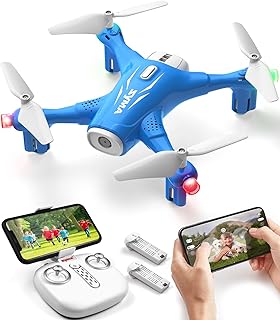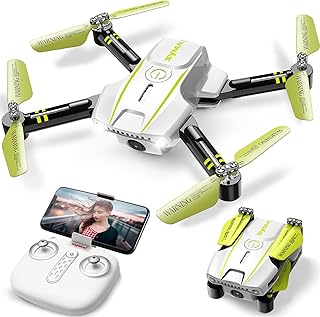* Low-Quality Cameras: SYMA drones often come equipped with low-resolution cameras, which result in blurry images and videos. They lack the features found in higher-end drones like:
* Larger sensors: These capture more light, leading to better image quality in low light.
* High dynamic range (HDR): This helps balance light and shadows, making images more appealing.
* Raw image capture: Allows for greater editing flexibility.
* Limited Features: SYMA drones usually lack advanced features such as:
* Gimbal stabilization: A mechanical stabilizer that keeps the camera steady, crucial for smooth footage.
* Manual control over camera settings: Allows for adjustments to shutter speed, aperture, and ISO, important for creative control.
* 4K video recording: Provides higher resolution and detail.
* Less Powerful Flight: SYMA drones generally have shorter flight times and less powerful motors than premium drones. This limits the ability to capture extended aerial shots.
However, there are some caveats:
* Beginner-Friendly: If you're a complete beginner to drone flying and are just starting to experiment, a SYMA drone can be a good and affordable introduction.
* Simple Functionality: They offer basic camera features and are easy to operate, making them suitable for casual aerial footage.
Alternatives for Photography and Videography:
If you're serious about aerial photography and videography, consider these alternatives:
* DJI Drones: DJI is a leading brand known for its high-quality cameras, advanced features, and user-friendly apps.
* Autel Robotics: Autel drones offer powerful performance and impressive image quality.
* Parrot Drones: Parrot offers a range of drones with creative features and innovative camera technology.
In conclusion:
While SYMA drones can be fun and affordable, they're not recommended for serious photography or videography due to their limited camera capabilities and features. For high-quality aerial footage, consider investing in a more advanced drone from a reputable brand.


